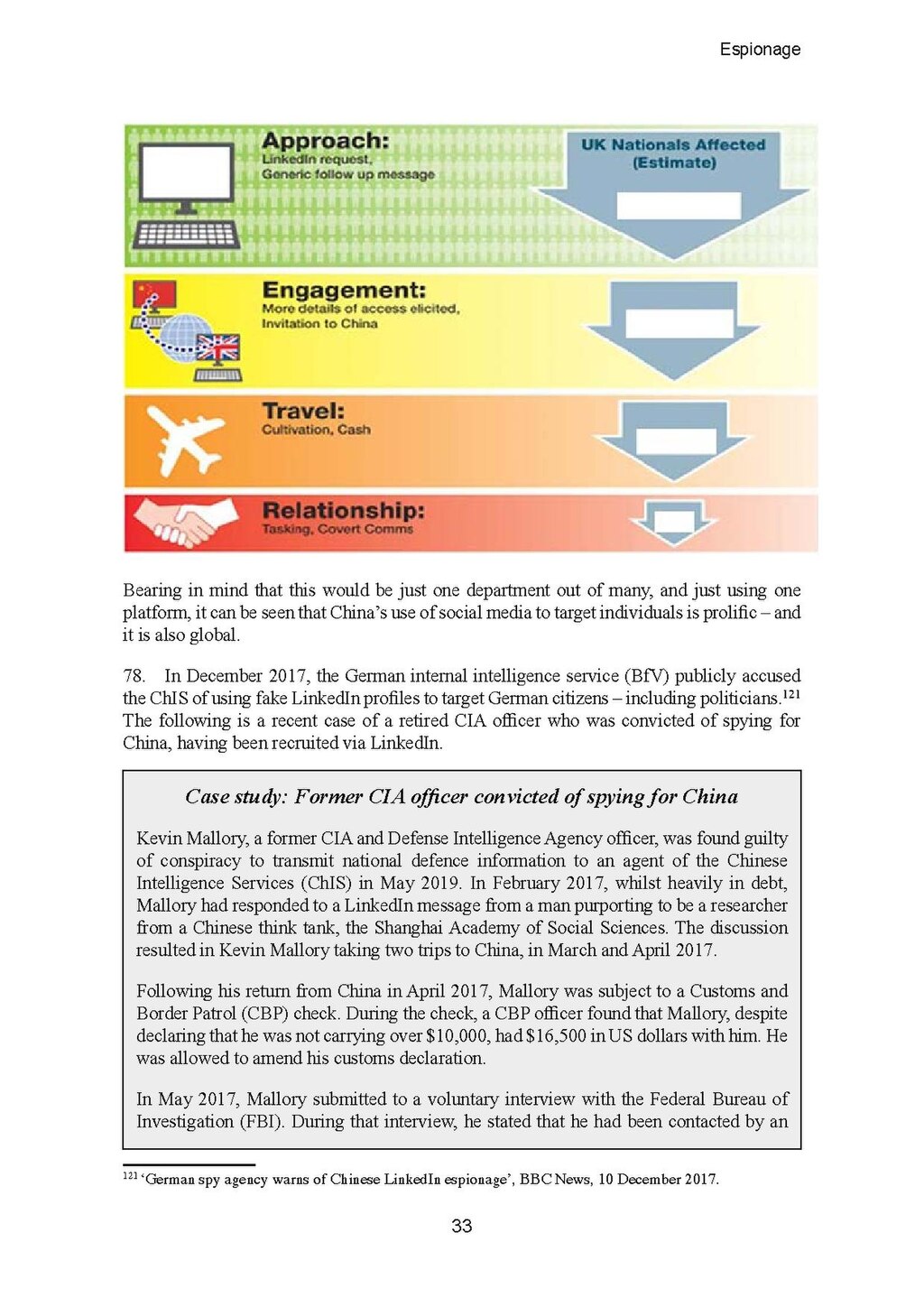-

Bearing in mind that this would be just one department out of many, and just using one platform, it can be seen that China's use of social media to target individuals is prolific—and it is also global.
- In December 2017, the German internal intelligence service (BfV) publicly accused the ChIS of using fake LinkedIn profiles to target German citizens—including politicians.[1] The following is a recent case of a retired CIA officer who was convicted of spying for China, having been recruited via LinkedIn.
Case study: Former CIA officer convicted of spying for China
Kevin Mallory, a former CIA and Defense Intelligence Agency officer, was found guilty of conspiracy to transmit national defence information to an agent of the Chinese Intelligence Services (ChIS) in May 2019. In February 2017, whilst heavily in debt, Mallory had responded to a LinkedIn message from a man purporting to be a researcher from a Chinese think tank, the Shanghai Academy of Social Sciences. The discussion resulted in Kevin Mallory taking two trips to China, in March and April 2017. Following his return from China in April 2017, Mallory was subject to a Customs and Border Patrol (CBP) check. During the check, a CBP officer found that Mallory, despite declaring that he was not carrying over $10,000, had $16,500 in US dollars with him. He was allowed to amend his customs declaration.
In May 2017, Mallory submitted to a voluntary interview with the Federal Bureau of Investigation (FBI). During that interview, he stated that he had been contacted by an- ↑ 'German spy agency warns of Chinese LinkedIn espionage', BBC News, 10 December 2017.
33

